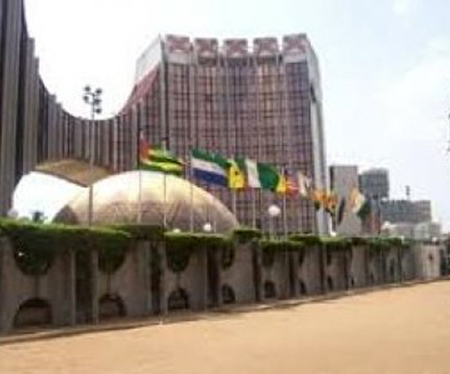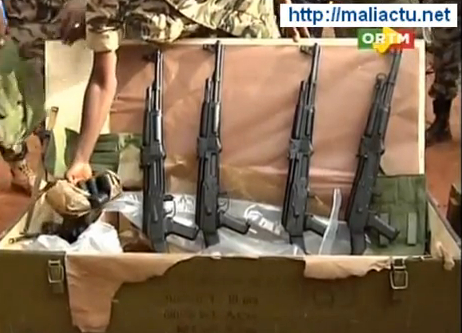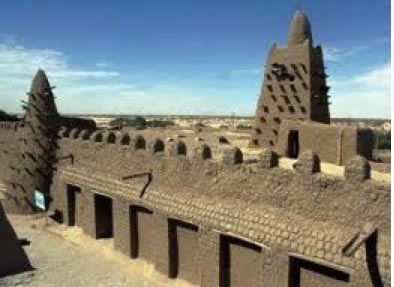The situation in Mali as I understand it: May 6, 2012, New York City

As I wrote this update, François Hollande had just won the French presidency defeating Sarkozy. Will the French involvement in this Malian crisis change?
Two weeks ago when I last wrote, it looked like the situation was beginning to stabilize.
The April 6th agreement between ECOWAS and the CNRDRE ( Sanogo and the coup leaders) for the return to constitutional law, the naming of an interim president and interim Prime Minister who would in turn name his government- the ministers who would make up his govt. And Two weeks ago, all this was done. There was a government in place- Dioncounda Traore was sworn in as interim President, Cheick Modibo Diarra was named interim Prime Minister and he named his government.
Between them and the rest of the civil society and political class, Malians would decide how to navigate the end of the constitutionally stipulated 40-day interim government and move on to the next step- a government of transition which would be in power until an election could be held.

ECOWAS met in Abidjan on April 26– all the presidents of the sub-region including the interim president of Mali- Dioncounda Traore. They were to discuss the situation in Mali. Why this special session was unclear since the road forward seemed clear. But it seems that they wanted to get rid of the CNRDRE with whom they had negotiated so that the interim government could be formed. At this meeting, ECOWAS decided to send troops to Mali, not to help recapture the north but to “secure the democracy” in the south! They also decided that the interim government would be extended to a year and that the interim president- who was at the meeting- would also be president for a year. This was an outrageous usurpation of Malian sovereignty by ECOWAS that caused general confusion and panic in Mali.
Had Dioncounda Traore betrayed Mali? It seemed that while the northern 2/3 of the country was occupied by Islamists, Al Qaeda and narcotrafficants, the neighbors wanted to occupy the rest! This was a blatant disregard for the treaty they had signed with CNDRDE just a few weeks earlier.
There is a general equation that coup = bad. I myself thought this as well. But what if the corruption is so vast and deep and so permeates a country and its politics, then how is change possible? This question that is not unique to Mali. This is really about the 1% vs the rest.
After the ECOWAS decision to send troops to Mali, the CNRDRE sent soldiers to the airport to prevent them from landing. There were rumors of foreign soldiers entering via various land routes.
The on the night of April 31-May 1, a counter-coup erupted. The red berets- the military loyal to the deposed President and his group attempted to take over the airport- presumably to allow the ECOWAS troops to land. They also tried to take the tv station, ORTM. There were reports of a lot of fighting and gunshots. As opposed the original coup which had been largely bloodless, this time there were military deaths and deadly stray bullets.
A group of soldiers scaled the walls of the ORTM compound and shot at everything that moved. Two of the women who sold food at the door were killed as were some of the security guards. All the people inside the buildings dove for the floor and stayed there on their stomachs until it was over.
There are a fight for Djicoroni para – the military camp in the middle of Bamako that was the headquarters of the red berets responsible for the counter coup, The camp is currently occupied by the military families but no soldiers.
The head of the Sikasso military zone was arrested and driven to Bamako.
The counter coup was repulsed and the CNRDRE started arresting those responsible. Most are not Malians but from Ivory Coast and Burkina Faso. Some from Senegal. They have been found with huge stocks of arms and huge amounts of cash. Following leads, the arrests continue including some high level military officers. Among those arrested is the son of the former president, Alpha Oumar Konare. The situation brought much of the political class in Mali closer to the CNRDRE.

Who do the people with the arms and money work for? ECOWAS? The presidents of Burkina Faso and Ivory Coast? Malians loyal to the deposed president and his group? The lines between these groups seem vague and fluid.
Why the stocks of arms and money already in Mali before the coup? To disrupt Mali in case the elections didn’t go the “right way” a la Ivory Coast? Mali is not prone to ethnic violence because marriage between the different ethnic groups in Mali has been part of the culture since the formation of the Mali empire in 1235.
How much did Sanogo know when he led the coup on March 21? Did he know about the stores of arms and foreign soldiers already in Bamako? Might post-election violence have erupted in Mali?
There was another meeting of ECOWAS in Dakar on May 3rd. This time the interim president and the interim prime minister attended. ECOWAS announced that they would only send troops to Mali if they were asked. They said that they would not be an army of occupation.
At present the arrests continue and the caches of arms and money continue to be found. There is the habitual sound of gunfire around Bamako. Politically, the situation seems to be back to where it was before the Abidjan meeting. Malians will determine their road forward.
CONCERNING THE NORTH
The situation gets worse as time passes and the Separatists(MNLA) /Islamists (Ansar Dine) /Al Queda (AQIM) /narcotrafficants settle in. They fight for dominance between them. The MNLA people don’t have enough to eat. The others in concert have money from kidnapping ransoms, drug traffic and outside support for other Islamist forces such as supply planes from Qatar.
There are over 200,000 refugees and internally displaced people. They are in dire need of everything- food, medicine and medical care and other primary necessities.
Gender based violence continues. A Human Rights Watch report documents war crimes by Northern rebels. Human Rigths Watch Report

In recent days there have been reports that the Ansar Dine Islamists destroyed sacred sites in Timbuktu. Why would Islamists destroy Islamic sacred sites? Because only their brand of Islam is the real Islam. All the other Islamic beliefs are false. And according to them, the way that the people in Timbuktu, an important center of Islamic learning since the middle ages, observed Islam was not correct. So Ansar Dine destroyed attacked the sacred building and burned the sacred contents of what they deemed to be profane. Reuters: Mali Islamists attack UNESCO holy site in Timbuktu
At least one Malian humanitarian convoy Cri de Coeur-Cry of the Heart brought some small amount of food and simple medicine to the north. There are plans for more. But the agreement for the international community – the UN and the Red Cross to bring more supplies has not been finalized.






